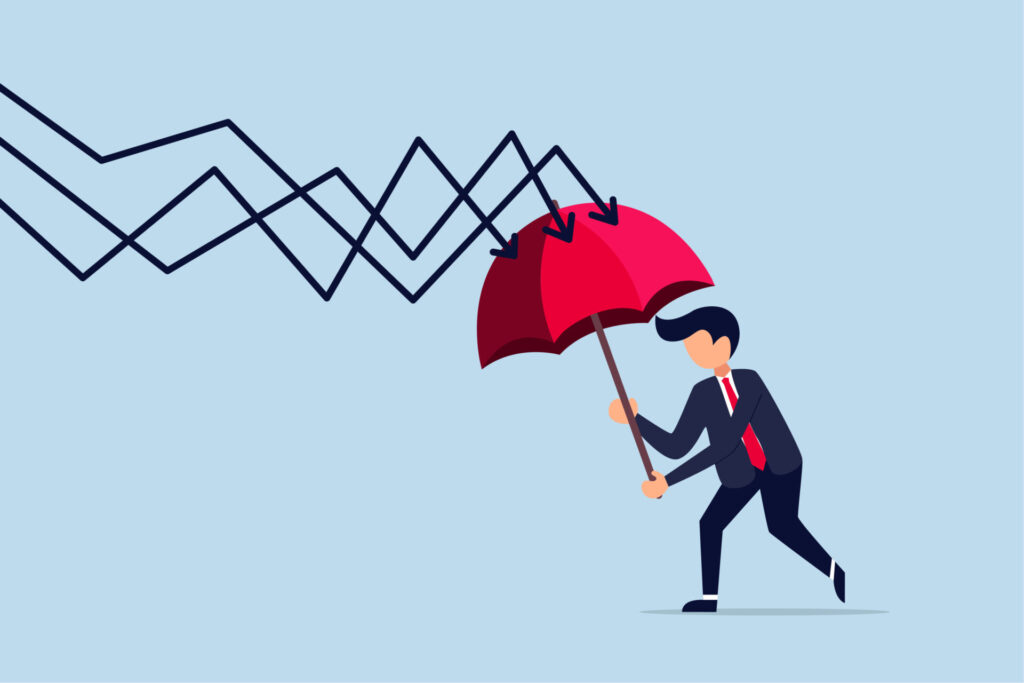Resilience in Everyday Life: The Key to Combating Daily Stress

Stress is a natural reaction of the body to challenges and strain, rooted in our evolutionary need for survival. While stress itself is not inherently negative, it can become unhealthy if it occurs too frequently, lasts too long, or is too intense: intended by nature as a short-term physical adaptation, a state of stress can then become the norm.
Good stress, bad stress?
Not all stress is equal. It is important to distinguish between stress, aka distress, and eustress:
Distress: Commonly referred to as (negative) stress, distress is an unpleasant situation that negatively impacts a person. This form of stress can burden our well-being and health. Depending on duration and intensity, as well as genetic predisposition and previous experiences, distress can potentially become pathological and lead to mental illnesses like depression and anxiety disorders, as well as physical issues like high blood pressure and digestive problems.
Eustress: Also known as “positive stress”, eustress is perceived as a manageable and exciting challenge. It is motivating and not seen as unpleasant.
Stress Management: Reduce Stress, Increase Resilience!
Everyone experiences stress in one way or another. Effective stress management strategies are essential to maintaining well-being and health. But what specifically can help us permanently combat stress?
- Regular physical exercise, e.g., yoga or endurance sports
- Positive social relationships
- Moments of security
- Music
- Conscious relaxation and mindfulness exercises
- Regular and restful sleep
Good resilience can also help us better manage stress in the long term.
What is resilience and how can we increase it?
Resilience is the ability to remain mentally healthy and productive despite adverse circumstances. Resilient people handle stress and challenges better, recover more quickly from setbacks, and emerge stronger from crises. Resilience is not an innate trait but a skill that can be developed through various strategies and behaviors.
Everyone can (further) develop their resilience. Humans are naturally highly resilient, adaptable, and flexible from birth. Neuroplasticity, our brain’s ability to form new neural pathways, exemplifies this adaptability. While neuroplasticity decreases with age, it persists throughout life, allowing us to positively influence our brain structures and reactions to stress, regardless of age. This allows us to actively influence how we react to environmental stimuli and stress.
Strategies for Increasing Resilience
Resilience can be increased similarly to muscle strength, through the correct balance of stress and recovery. Key principles include:
- Stress stimuli must be followed by recovery phases
- Higher load stimuli require more recovery time
- Higher load stimuli lead to greater adaptation
- Higher load stimuli should be of shorter duration
- Endurance is built with a lower loads over long periods
We can deduce from this: It is not stress itself that is the issue, but the lack of rest.
Long-term resilience can be developed sustainably with the following methods and mindsets:
- Mindfulness: Accept what happens with an open attitude. Practice mindfulness!
- Setbacks are part of life: Life will go on and better days will come.
- Believe in your ability to take influence: Resilient people know their areas of influence and recognize where they cannot exert control.
- Willingness to take responsibility for yourself and your life
- Good problem-solving skills: Resilient people seek solutions persistently, even if they are not immediately apparent. They have stamina and do not give up easily.
- See yourself as a survivor and not as a victim: Get proactive in managing situations. Ask, „What can I do to cope?“
- Willingness to seek and accept help: Confide in others and seek professional help if needed. You do not have to solve everything alone.
- Stable social relationships: Humans are social beings that require stable social relationships. Resilient people have at least one dependable person in their lives who makes them feel accepted and liked. But remember, quality over quantity counts.
Conclusion
Stress is an inevitable part of life, but our response to it can make a significant difference. By strengthening our resilience, we can better manage stress, recover from setbacks more quickly, and lead fulfilling, healthy lives. Resilience is a dynamic skill that can be continuously improved through conscious effort and practice. By seeking social support, caring for ourselves, and cultivating positive thought patterns, we can enhance our resistance to stress and enjoy a more stable, happier life.
Would you like to learn more about our resilience services? Please feel free to contact us at any time.
